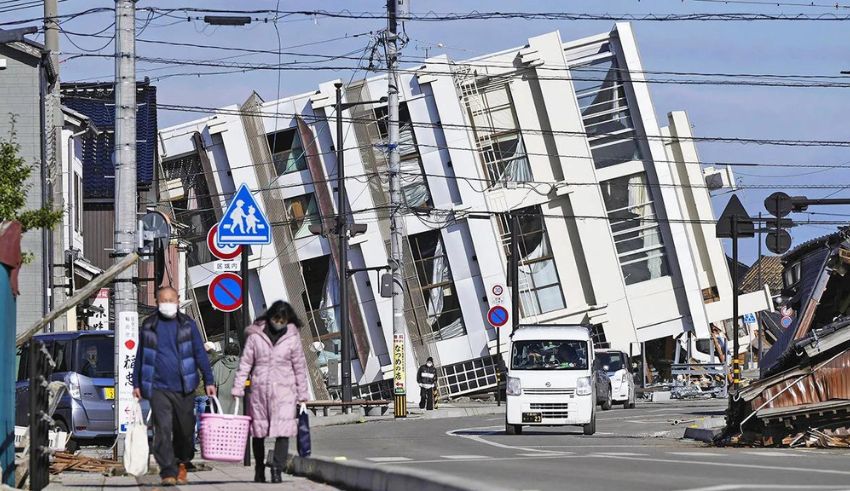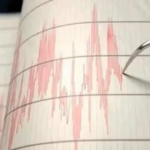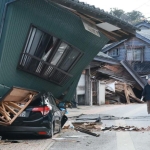
Last updated on January 8th, 2024 at 03:37 pm
In a world where technology reigns, Japan has always been at the forefront of innovation. From cutting-edge electronics to futuristic gadgets, their prowess in the industry is undeniable. However, even the mightiest can be brought to their knees when nature unleashes its fury. Recently, an earthquake measuring 4.4 on the Richter scale shook Japan’s Noto region, sending shockwaves through not only its people but also its booming electronics sector. As we delve into this unique intersection between natural disasters and business disruption, join us in uncovering how these cataclysmic events have affected one of Japan’s most vital industries and what it means for the rest of the world.
The Quake’s Epicenter: Noto Peninsula
Japan’s Noto Peninsula, a region known for its scenic beauty, has become the epicenter of a seismic event that has far-reaching implications for the nation’s economic stability. The 4.4 magnitude earthquake, while not as powerful as its predecessor, has compounded the challenges posed by the recent 7.6 magnitude quake on New Year’s Day.
Impact on Tech Giants
Japan’s influence in the APAC region extends beyond its borders, with intricate supply chains interwoven with neighboring economies. The disruption caused by the earthquake raises questions about the resilience of regional trade and the potential ripple effects on the broader APAC economic landscape.
The aftermath of a significant 7.6 magnitude earthquake on New Year’s Day continues to plague Ishikawa Prefecture, forcing tech giants like Toshiba, GlobalWafers, and Murata to halt operations temporarily.
Tech Industry Response on Nature’s Wrath, Earthquake, or Tsunami!
Toshiba’s semiconductor production hub has temporarily shut down, awaiting infrastructure assessments. Meanwhile, GlobalWafers reports a swift recovery after a brief shutdown.
Major players, including Murata Manufacturing, Kokusai Electric, Taiyo Yuden, and Shin-Etsu, are assessing damage to their facilities near the earthquake epicenter.
Silver Lining for Semiconductor Industry
While the earthquake has undoubtedly disrupted supply chains, the semiconductor industry’s manageable impact offers a glimmer of hope. Trendforce’s assessment considers factors such as the industry’s current downturn, low inventories, and the seismic resilience of most factories located in areas with intensities of level 4 to 5.
Keep Reading
Nuclear Plants Unaffected
In the shadow of the earthquake, concerns about Japan’s nuclear infrastructure arise. Fortunately, the Nuclear Regulations Authority reports no abnormalities at nuclear plants along the affected area of the Sea of Japan. This news provides a crucial assurance amid the broader challenges posed by the natural disaster.
Ongoing Concerns from Past Disasters
The recent seismic events revive memories of the 2011 earthquake and tsunami that led to the Fukushima nuclear meltdowns, sparking renewed concerns about environmental impact.
In the face of nature’s fury, Japan’s businesses navigate challenges, underscoring the delicate balance between technological progress and the unpredictable forces of the natural world.
In conclusion, nature’s wrath has once again underscored the delicate balance between technological progress and the unpredictable forces of the natural world. As Japan navigates the complexities of recovery, the global business community watches closely, recognizing the intertwined nature of economies in the APAC region. The resilience displayed by businesses, coupled with strategic responses, will shape the narrative of recovery and resilience in the aftermath of nature’s disruption.




























